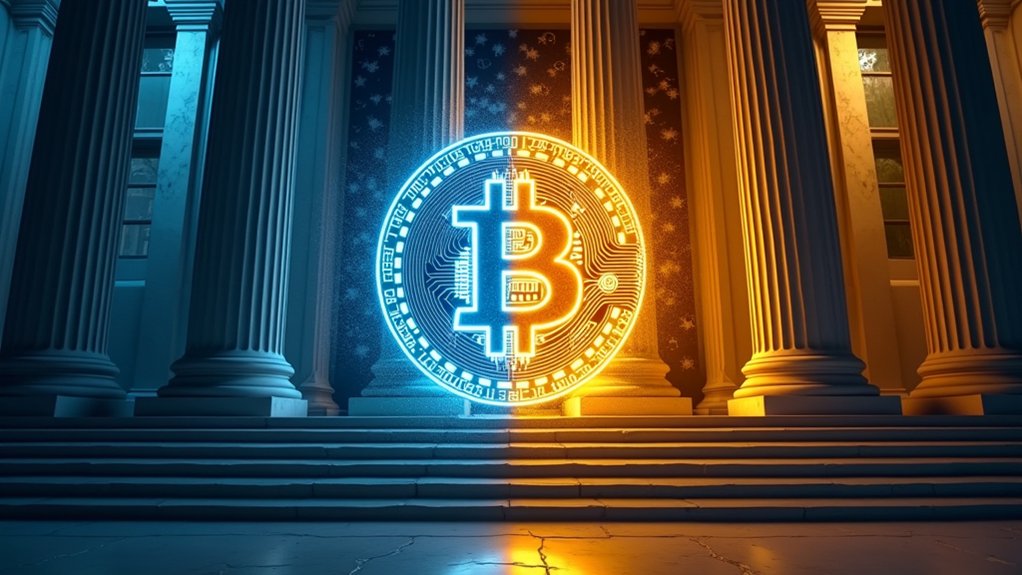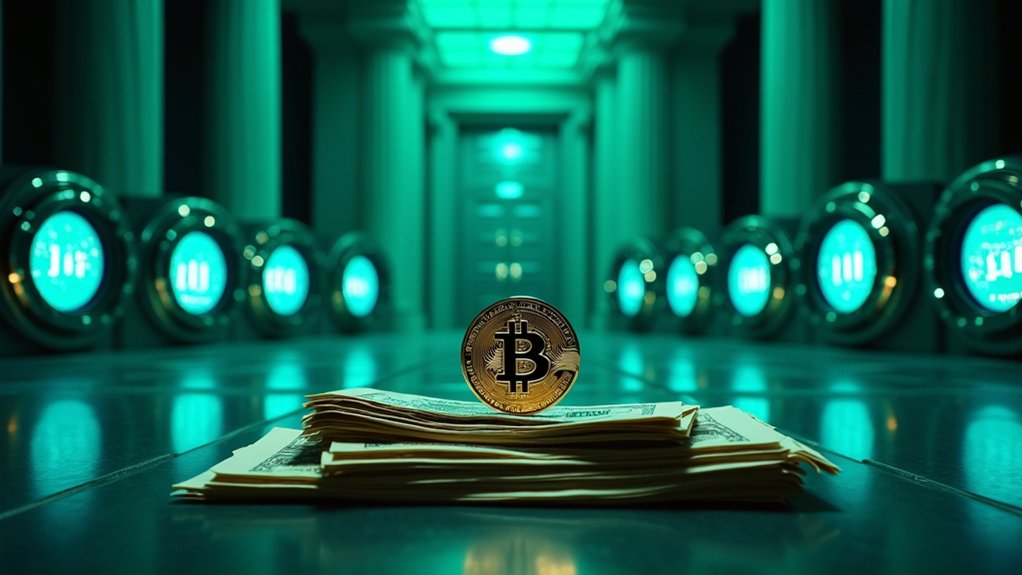While many Americans struggle to understand cryptocurrency, the U.S. Treasury now holds an estimated $17 billion in Bitcoin. That’s not small change. What started as $500 million in seized criminal assets has ballooned thanks to Bitcoin’s meteoric price appreciation. Uncle Sam accidentally became a crypto whale.
From criminal seizures to $17 billion in Bitcoin holdings, Uncle Sam stumbled into becoming America’s biggest crypto whale.
President Trump’s executive order just changed the game. The government is now treating these digital coins as legitimate reserve assets. No more selling off seized Bitcoin. The strategy? Position America as the first major power with national Bitcoin reserves. Smart move or digital fantasy? The jury’s still out.
The Treasury isn’t planning to raid taxpayer wallets for more crypto, thank goodness. Instead, they’re exploring budget-neutral options. Think unused government energy redirected to mining operations. Or continued expansion through seized criminal assets. Crypto criminals inadvertently funding America’s future—ironic, isn’t it?
Economists are watching closely. Bitcoin might serve as a hedge against inflation and currency debasement. The executive order specifically recognizes Bitcoin as digital gold, highlighting its unique properties in the asset class. If the digital asset continues its upward trajectory, it could even help chip away at our massive national debt. Traditional dollar reserves might soon share space with digital alternatives. Welcome to 2023.
The regulatory picture remains murky at best. Is Bitcoin a security? A commodity? Nobody in Washington seems to know for sure. Oversight could shift from the SEC to the CFTC. Meanwhile, custody solutions must be bulletproof. Imagine the headlines if the Treasury got hacked.
America isn’t alone in this crypto experiment. El Salvador already adopted Bitcoin as legal tender. Other nations are quietly building their own digital reserves. Unlike fiat-backed stablecoins, Bitcoin offers potential appreciation rather than just stability. It’s a global race now.
Not everyone’s thrilled. Critics point to Bitcoin’s notorious volatility. Lawmakers question whether government has any business holding speculative assets. Many economists remain skeptical about undermining confidence in the US dollar as the world’s reserve currency. But proponents see a digital revolution in global finance.
Love it or hate it, America’s Bitcoin strategy represents a pivotal moment. The future of national reserves might be digital after all. Who would’ve thought?





